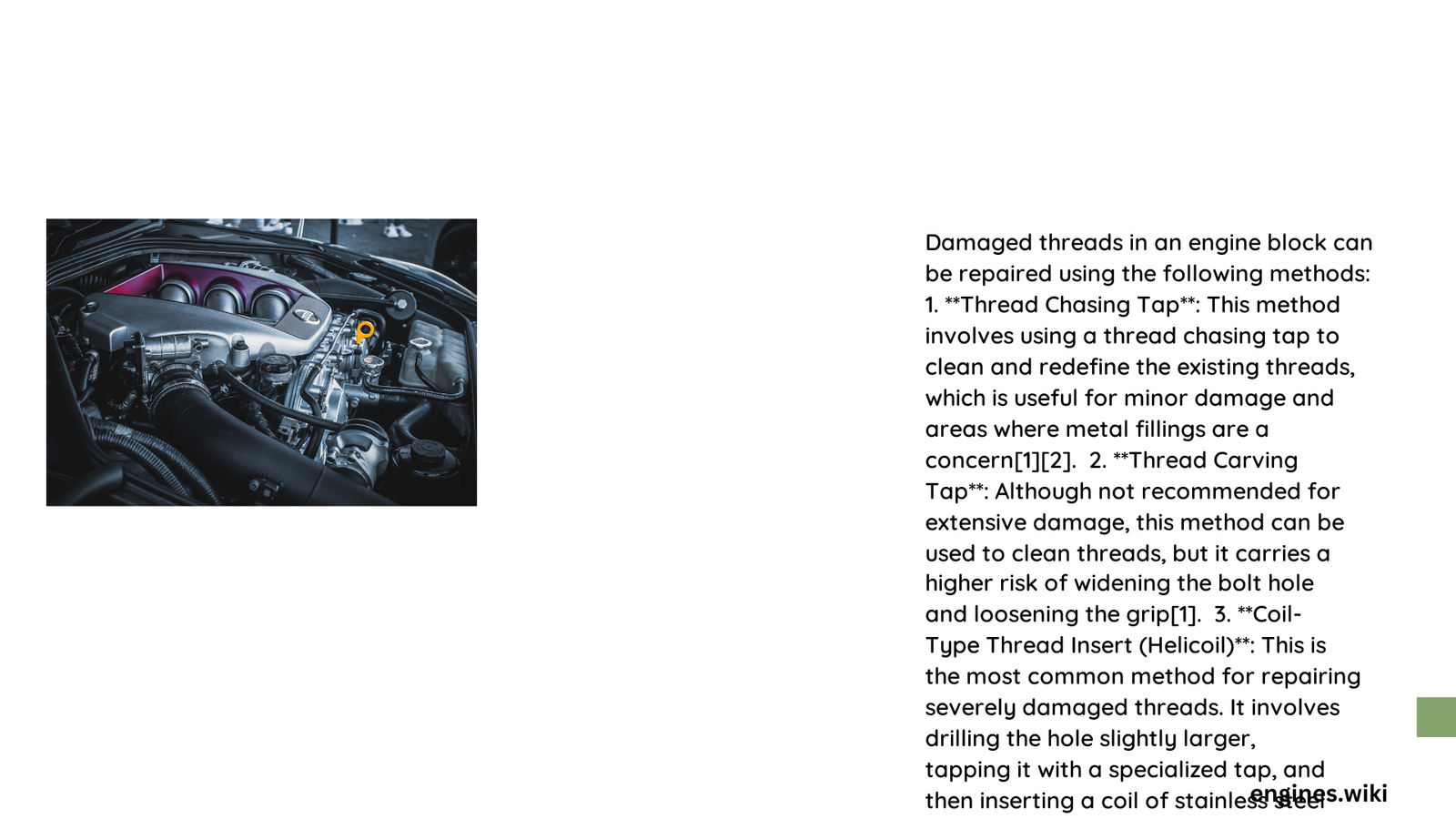Engine blocks often suffer from stripped or damaged threads due to repeated use, corrosion, or improper installation. Mechanics and automotive enthusiasts face critical challenges when confronting thread damage, which can compromise engine performance and structural integrity. Fortunately, specialized thread repair techniques like Helicoil and TIME-SERT inserts provide robust solutions for restoring damaged threads with professional-grade precision and durability.
What Are the Primary Methods for Repairing Damaged Engine Block Threads?
Can Helicoil Inserts Effectively Restore Damaged Threads?
Helicoil inserts represent a gold standard in thread repair technology. Constructed from high-strength stainless steel, these precision-engineered components offer exceptional thread restoration capabilities.
Key Helicoil Characteristics
- Material: Stainless steel wire with diamond profile
- Precision: Engineered for exact thread specifications
- Durability: Withstands high mechanical stress
Installation Process for Helicoil
- Accurately drill damaged thread area
- Use specialized S.T.I. tap for thread preparation
- Clean hole thoroughly
- Install Helicoil insert using dedicated installation tool
- Break off installation tab
How Do TIME-SERT Inserts Compare to Helicoil?
TIME-SERT inserts offer an alternative thread repair method with unique advantages:
| Feature | Helicoil | TIME-SERT |
|---|---|---|
| Material | Stainless Steel Wire | Solid Carbon/Stainless Steel |
| Installation Complexity | Moderate | Slightly More Complex |
| Thread Strength | High | Very High |
| Recommended Applications | Light-Medium Stress | Heavy Stress Environments |
What Tools Are Essential for Thread Repair?
Successful thread restoration requires precise tools:
- Drill Bits: Specific diameter for thread size
- S.T.I. Taps: Create larger repair threads
- Tap Guides: Ensure straight alignment
- Installation Tools: Specialized drivers
- Threadlocker: Secure insert placement
- Depth Gauge: Measure hole precision
Are Chemical Repairs Like Epoxy Recommended?
While epoxy solutions exist, they are generally NOT recommended for engine block thread repair due to:
– Limited temperature resistance
– Lower mechanical strength
– Potential failure under high-stress conditions
What Factors Influence Successful Thread Repair?
Critical considerations include:
– Precise measurement
– Clean working environment
– Correct tool selection
– Understanding thread specifications
– Careful, methodical installation technique
Professional Recommendations

Automotive experts consistently recommend mechanical insert methods like Helicoil and TIME-SERT over chemical alternatives. These techniques provide:
– Permanent thread restoration
– Enhanced thread strength
– Reliable performance under extreme conditions
Cost Considerations
Thread repair insert kits typically range from $50-$250, significantly cheaper than engine block replacement or comprehensive machining.
Final Technical Insights
When addressing damaged threads in an engine block, prioritize:
– Mechanical insert methods
– Precision installation
– High-quality specialized tools
– Manufacturer-recommended techniques
Reference:
– DSport Magazine – Thread Repair Techniques
– Professional Automotive Repair Guide
– Automotive Engineering Journal
